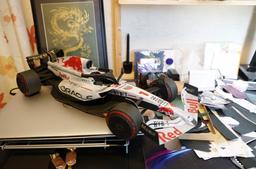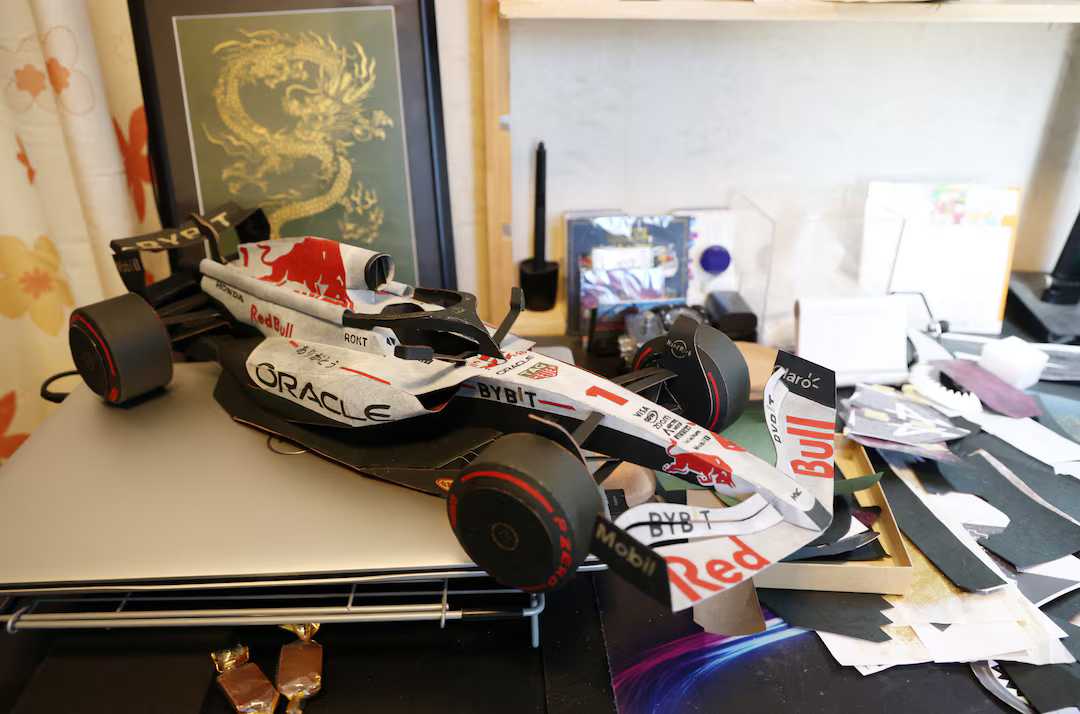

SUZUKA, Japan, April 2 (Reuters) - Across town from Japan's Suzuka Circuit, host to this week's Grand Prix, Kenji Tanaka has been perfecting his latest Formula One paper model that he hopes will draw international interest to a centuries-old craft.
Born in the town of Suzuka, where the racing event was first held in 1987, Tanaka has for the last nine years been making intricate models of cars, steering wheels and trophies, and giving some of them to drivers.
He uses a method of paper stencilling called Ise Katagami that began in the region more than 1,000 years ago as a way to print elaborate patterns on kimonos, the national dress of Japan.
New technology and waning demand for kimonos mean the few craftsmen who practise the traditional methods are seeking new ways to promote the art form.
"I always go to see F1 every year. In 2015 I wanted to carve portraits into Ise Katagami and give them to F1 drivers as gifts. That’s how I started it," said Tanaka from his home, a few kilometres from the famous track.
Some of his artwork and a picture of former world champion Sebastian Vettel clutching one of his model trophies are on display in the town hall. This year, he plans to give a model steering wheel to Alpine driver Esteban Ocon.
Other local craftsmen have been trying different ways to promote Ise Katagami, such as making patterned light fittings.
"While we value the technique itself, we also need to think of new ways to use it, otherwise it will not survive," said Mitsuru Kobayashi, head of the Ise Katagami Cooperative Association.
(Reporting by Irene Wang in Suzuka; Editing by John Geddie and Barbara Lewis)




